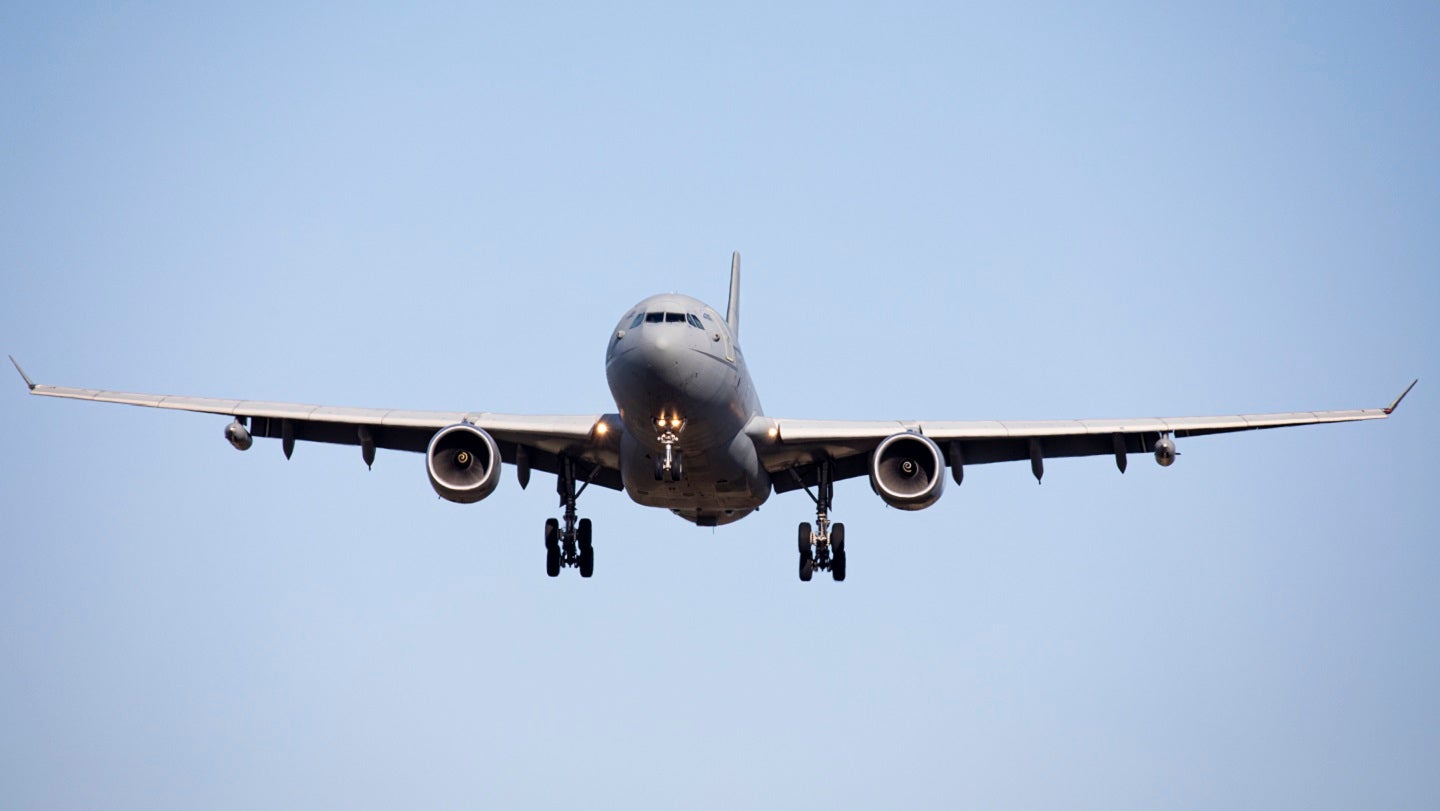
The UK Royal Air Force (RAF) has completed an air-to-air refuelling flight using a Voyager tanker powered by a 43% blend of sustainable aviation fuel (SAF), according to the UK Ministry of Defence (MoD).
In a 17 April release, the MoD said that flying from RAF Brize Norton, the tanker operated over the North Sea before returning to its home base via Farnborough. The Voyager tanker also conducted air-to-air refuelling serials with RAF Typhoon multirole fighters as part of planned training.
Made from waste-based sustainable feedstocks such as used cooking oil, the UK MoD says SAF reduces life cycle carbon emissions by up to 80% compared to traditional jet fuel and will be key to reducing the RAF’s reliance on global supply chains and fossil fuels while improving operational resilience.
The MoD said that the flight followed a “series of recent milestones achieved by the RAF towards sustainable aviation future.” This included an SAF-fuelled RAF Voyager flight, which also marked the opening of the annual Sustainable Skies World Summit at Farnborough International Exhibition & Conference Centre. The event outlined how aviation would work towards a net-zero industry target.
UK Defence Minister Baroness Goldie said: “Greater use of alternative and sustainable fuel can only lead to positive outcomes for defence, the UK, and our collective endeavour against climate change.”
Supporting the RAF’s ambitions to be Net Zero by 2040, the Voyager flight was part of an existing task from the Chief of the Air Staff to gather the required data to inform the longer-term transition away from fossil fuels, the MoD stated.

US Tariffs are shifting - will you react or anticipate?
Don’t let policy changes catch you off guard. Stay proactive with real-time data and expert analysis.
By GlobalDataThe RAF has identified that using SAF and alternative aviation fuels will be critical for the future operational capability of the RAF and wider military aviation, as the service looks to reach a net zero goal by 2040.
The Jet Zero Council, a partnership between industry and government with the aim of delivering at least 10% SAF in the UK fuel mix by 2030 and zero-emission transatlantic flight within a generation, will also meet during the Sustainable Skies World Summit.



